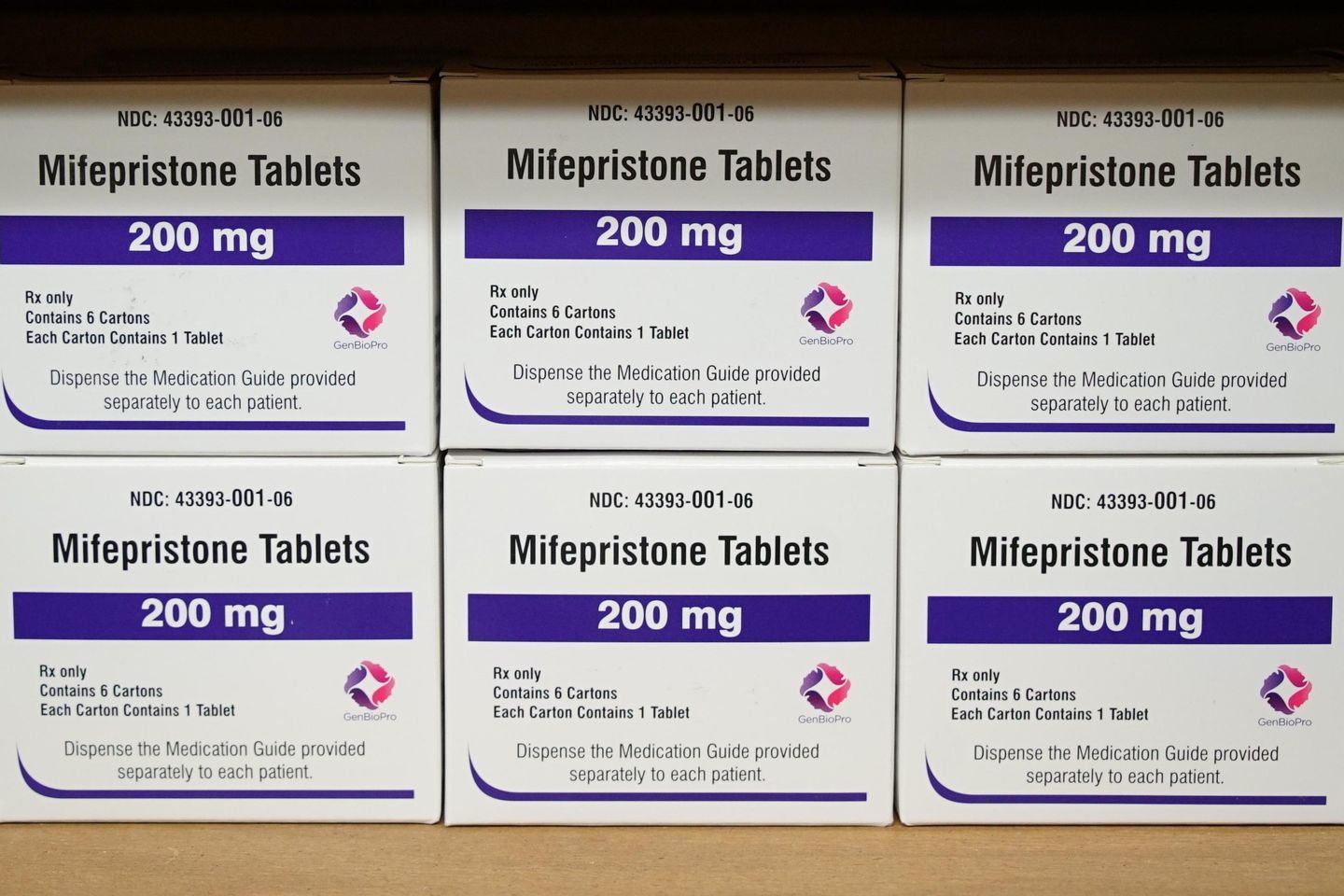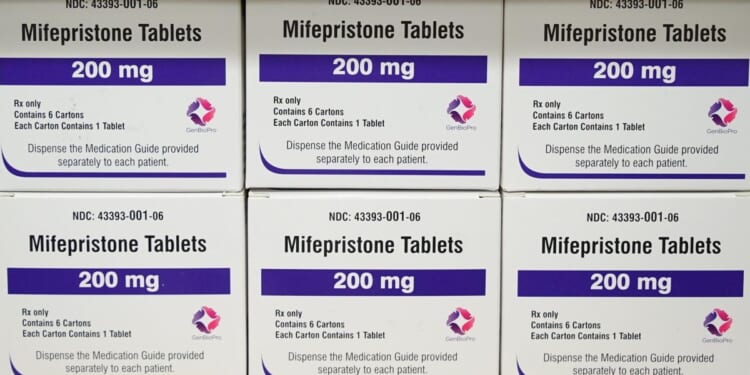
The number of abortion pills that pro-choice advocacy groups sent women by mail or outside formal medical settings surged during the six months after the Supreme Court overturned Roe v. Wade.
Researchers from the University of Texas at Austin and two abortion pill advocacy groups — the National Women’s Health Network in Washington and Aid Access in the Netherlands — analyzed self-reported data from groups that provided medications from July 1 through Dec. 31, 2022. The Supreme Court ruled on June 24 that year to return abortion jurisdiction to the states.
The researchers, reporting Monday in the Journal of the American Medical Association, found that the number of “provisions for self-managed abortions” increased by 27,838 over what they projected based on trends before the ruling.
The study pointed to previous research showing that surgical abortions dropped by 32,360 over the same period as state restrictions drove clinics to close in some parts of the country.
“Results suggest that a substantial number of abortion seekers accessed services despite the implementation of state-level bans and restrictions,” the researchers wrote.
The study is the first to report the number of abortion pills shipped in the U.S. after the end of Roe.
As conservative states such as Texas moved to restrict abortions over the past two years, liberal states such as California made them more available.
At the federal level, the Biden administration lifted requirements in 2022 allowing only physicians to dispense abortion pills during office visits, making it easier for women to terminate their pregnancies at home.
The JAMA study was released one day before the Supreme Court was scheduled to hear oral arguments in a Texas-based case challenging expanded access to mifepristone, a drug used in miscarriages and self-managed abortions that pro-life advocates warn has dangerous side effects for women.
An op-ed on the case that JAMA published alongside the study warned that ordering the Food and Drug Administration to reinstate restrictions “will further undermine health and health equity” for minorities.
“Evidence suggests that telemedicine abortion care holds promise in reducing health inequity, although intersectional barriers to telemedicine also disproportionately affect historically excluded people,” Drs. Eve Espey and Lisa Hofler of the University of New Mexico and Dr. Tiffany Hailstorks of Emory University wrote in the article.
Mary Elizabeth Castle, director of government relations for Texas Values, a pro-life conservative Christian advocacy group that has signed an amicus brief in the case, rejected that argument.
“The reason why the FDA restricted these pills in the first place is they are dangerous,” Ms. Castle, who was in Washington to attend the oral arguments, told The Washington Times. “It ends the baby’s life, threatens the mother’s life, and can send women to the emergency room with severe cramping and bleeding that becomes septic if pieces of the baby remain inside them.”
Medication abortions, also known as chemical abortions, involve a two-drug regimen of mifepristone and misoprostol.
The pro-choice Guttmacher Institute reported this month that the regimen was used in 63% of abortions reported in the United States last year. That was up from 53% in a 2020 report and 24% in 2011.
The JAMA study counted a monthly average of 5,931 abortion pill provisions during the last six months of 2022. That was up from an average of 1,407 before the high court overturned the national right to an abortion.
Researchers said community-based advocacy networks accounted for 51.4% of the monthly provisions, telemedicine organizations operating outside formal medical settings provided 37.2%, and online vendors sent 11.4% of the pills.
Telemedicine groups such as Aid Access “typically involve a physician located outside the US who prescribes mifepristone and misoprostol,” the study said.
“The recipient is asked to report relevant clinical history and donate approximately $100 to the service, with reduced donation amounts based on financial need,” the researchers said. “Medications are then mailed to the US from an overseas pharmacy.”
A spokesperson for the National Women’s Health Network, whose Plan C initiative pledges “abortion pills by mail in every state,” declined to comment on the study.
Reached for comment, several outside experts offered mixed takes on the findings.
“Doomsday predictions that [the end of Roe] would lead to a sharp decrease in abortions have not been borne out, pun intended,” said Josh Blackman, a constitutional law professor at South Texas College of Law in Houston.
Daniel K. Williams, a historian and researcher with the Ashbrook Center at Ashland University, a Christian school, said the study confirms that more women than previously known have ordered pills online to terminate their pregnancies at home or have crossed state lines for surgeries.
“This is exactly what some people predicted would happen in the wake of the court’s ruling,” Mr. Williams said. “Now that the majority of abortions performed in the U.S. are chemical rather than surgical abortions, preventing abortion through regulation alone has become a very challenging endeavor.”
Michael New, an assistant professor of social research at the Catholic University of America and affiliated scholar at the pro-life Charlotte Lozier Institute, said there are “reasons to question” self-reported data from groups that profit from selling abortion pills.
He also questioned the role of medical journals in promoting chemical abortions.
“The fact that this study was released one day before oral arguments … is further evidence of the increasing politicization of academic journals,” Mr. New said. “Other examples include the recent decision by Sage Publishing to retract three studies by Charlotte Lozier Institute scholars who provided evidence of the health risks of chemical abortion drugs.”












